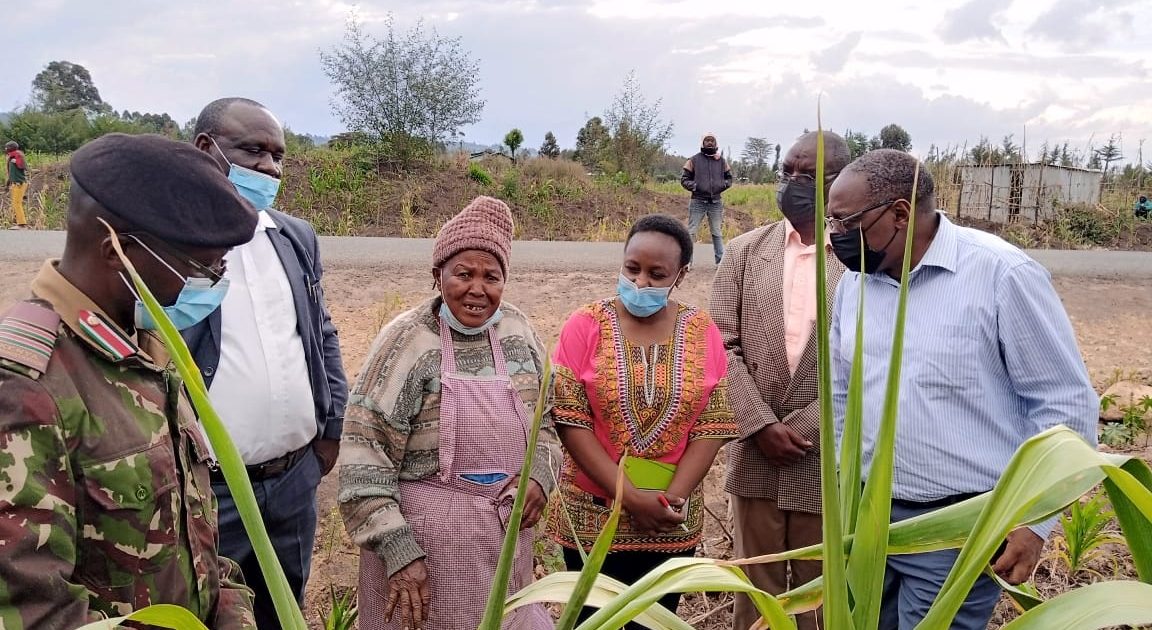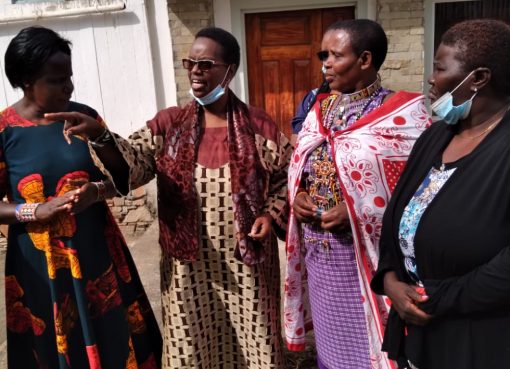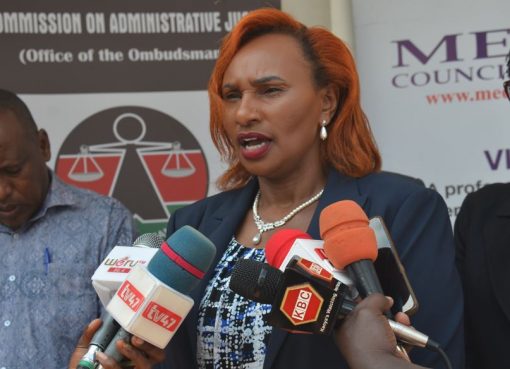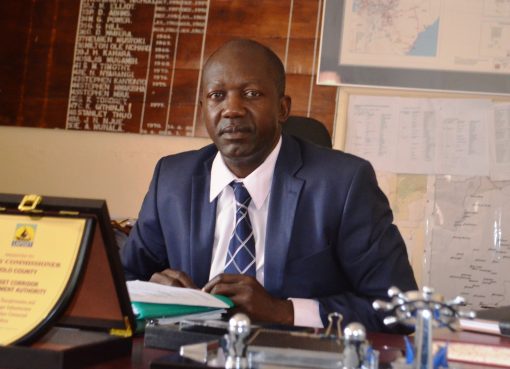Small holder farmers have been advised to take up crop insurance to protect themselves against losses triggered by weather unpredictability.
Principal Secretary State Department for Crop Development and Agricultural Research, Prof. Hamadi Iddi Boga said agricultural insurance offers a sustainable approach to unlocking small-scale farmers’ investments in agriculture while enhancing their resilience and productivity.
Speaking when he toured Njoro sub-county to assess the state of food security in Nakuru, Prof. Boga observed that many smallholder farmers are not aware of crop insurance while many of them also do not consider farming as a business.
“Agriculture is no longer a trial and error enterprise but a serious venture where a farmer should be able to borrow money to fund their farming activities without fear of their properties being seized when their crops do badly. Crop insurance is the way to go for higher yields and better farm husbandry,” he said.
Prof. Boga was accompanied by County Executive Committee Member for Agriculture Dr. Immaculate Maina, County Agriculture Chief Officer, Kibet Maina and Director Fredrick Owino.
He noted that the Ministry was partnering with underwriters and agricultural experts in training farmers on proper agronomic practices and why crops should be insured.
“Taking crop insurance doesn’t mean a farmer stops managing or taking care of his crops. Insurance providers cover and compensate a farmer from risks that are out of the control of the farmer,” Prof. Boga stated, adding that insurance is a risk mitigation, hence a farmer doesn’t have to be compensated if his crops haven’t been at any risk.
Through the Kenya Agricultural Insurance Program (KAIP) farmers are expected to pay 50 percent of the total amount which is Sh710, while the government pays the other half totaling to Sh1420 per month from half an acre to 20 acres.
He added: “The Government subsidy is on a first-come-first-served basis and when the subsidy limit is reached the sales window is closed.
Millions of rural households in Kenya rely on agriculture for their income, but a warming climate is bringing more intense and frequent droughts, disrupting production.
Dr. Maina indicated that small farmers produced up to 80 percent of the food supply in Kenya and faced a 90 percent chance of crop loss due to factors beyond their control, such as pest outbreaks and drought. She projected that maize yields in the devolved unit will drop by 40 percent this year due to adverse weather conditions.
“Nakuru is one of Kenya’s most important food baskets. However, this year with the erratic weather patterns, the maize crop has failed in many areas including Lare, Njoro, Visoi, Soin, Solai and Waseges wards. The County Government in collaboration with partners has provided training on conservation agriculture in the face of drastic climatic changes currently experienced,” she stated.
The CEC affirmed that her department will collaborate with the National Government to sensitize farmers on the Kenya Agricultural Observatory Platform, an online platform, which gives farmers insights on weather, agronomics and analytics.
By Jane Ngugi





